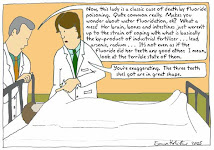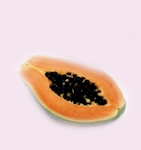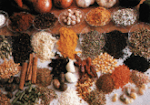Article Date: 22 May 2007 - 9:00 PDT
US soldiers in Iraq do not carry the bacteria responsible for difficult-to-treat wound infections found in military hospitals treating soldiers wounded in Iraq, according to an article published electronically, in
Infection Control and Hospital Epidemiology. The article will appear in the June issue of the journal.
Investigator Matthew E. Griffith, MD, (Brooke Army Medical Center at Fort Sam Houston, San Antonio, Texas) and colleagues found that drug-resistant strains of Acinetobacter calcoaceticus-baumannii complex are not present on the skin of uninjured soldiers in Iraq, as had been expected.
A. calcoaceticus-baumannii complex is an important cause of trauma-associated and hospital-acquired infection throughout the world, and multidrug-resistant strains of the bacteria have been infecting injured soldiers treated in US military hospitals in Iraq.
"We need to know where these infections are coming from," explains Dr. Griffith. "One of the possibilities was that A. calcoaceticus-baumannii was on the soldiers' skin before injury and simply traveled to the wound site to cause the infection. However, our research shows that this is not the case."
Although the consequences of the outbreak A. calcoaceticus-baumannii infection in US military hospitals serving soldiers wounded in Iraq are well described, the source of the outbreak is unknown.
To determine whether A. calcoaceticus-baumannii complex is carried on the skin of healthy US Army soldiers, investigators cultured skin swab specimens from 102 active military soldiers stationed at a base in Iraq. The base is in an environment representative of all Iraqi environments with desert, irrigated farmland and an urban area nearby.
Several previous reports have described skin carriage of Acinetobacter species in healthy people. The carriage rates have been found to vary with climate and geography. These reports may not be generalizable to US Army soldiers in Iraq, which has an extremely dry climate.
"If skin carriage is not the source of A. calcoaceticus-baumannii complex infection, then the other possibility is that the bacteria contaminates the wounds after injury," explains Dr. Griffith. "This could happen while an injured soldier is awaiting treatment or in the hospital during or after receiving medical care."
"This observation refutes the concept that the bacterium is acquired prior to injury among soldiers deployed to Iraq," Dr. Griffith says. "In addition, this observation adds to the ever growing body of evidence implicating nosocomial transmission as the cause of the ongoing military outbreak."
Because of this and similar research, an increased emphasis on infection control has been put in place in the US military's combat hospitals.
Infection Control and Hospital Epidemiology provides original, peer-reviewed scientific articles for anyone involved with an infection control or epidemiology program in a hospital or healthcare facility. Written by infection control practitioners and epidemiologists and guided by an editorial board composed of the nation's leaders in the field, ICHE provides a critical forum for this vital information.
Contact: Amy Jenkins
University of Chicago Press Journals ----------------------------
Article adapted by Medical News Today from original press release.----------------------------
See
info that HELPS HEAL !more info
 mmm, a Mango tree,
mmm, a Mango tree, best taste in the world!
best taste in the world!
 but maybe one day, I'll at least grow some herbs and tomatoes - easy!
but maybe one day, I'll at least grow some herbs and tomatoes - easy!




 worst taste, but 'good for you'.
worst taste, but 'good for you'.





















